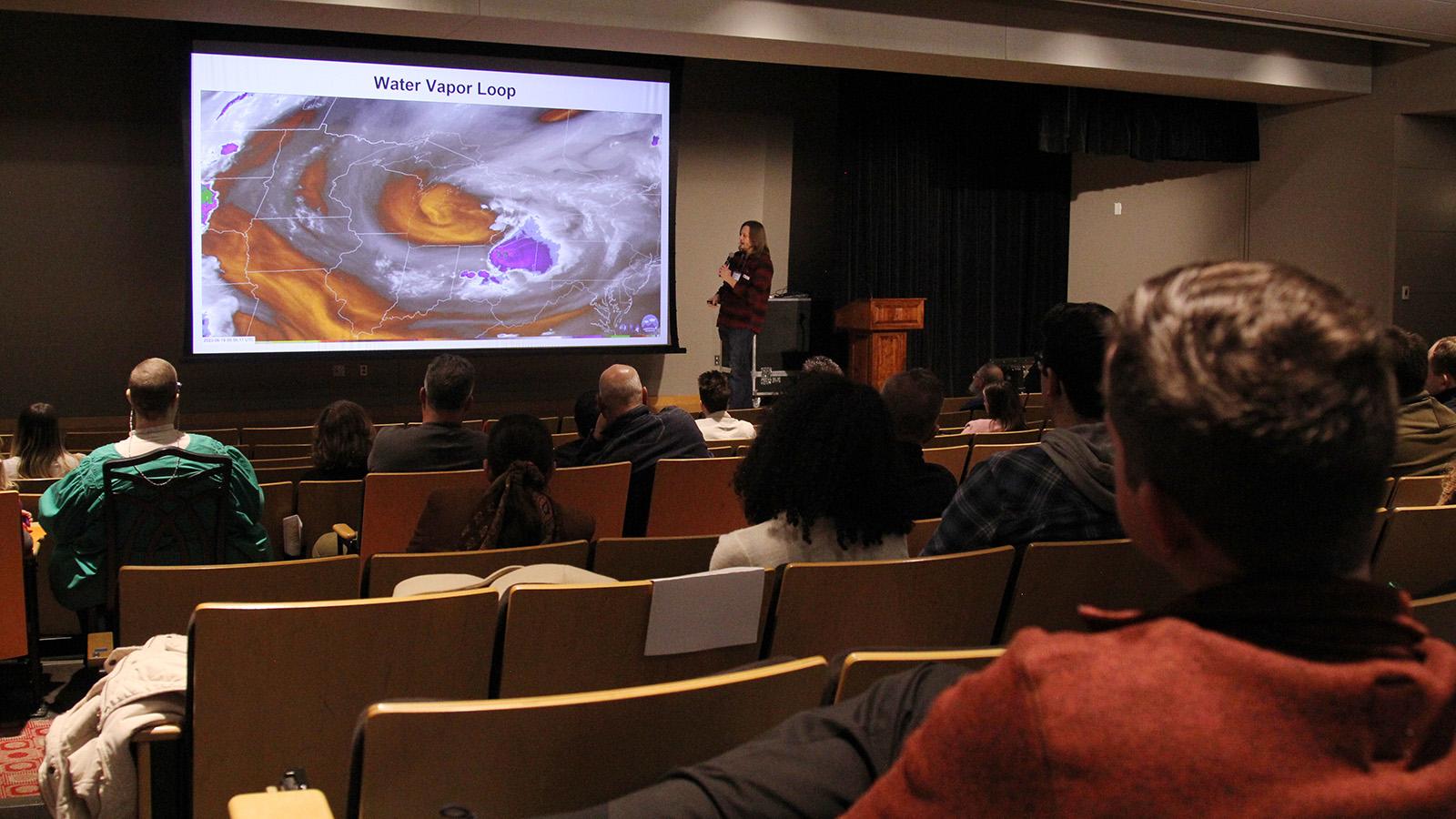Atmospheric Sciences Minor
Curious about the role of weather and climate on our world? The Atmospheric Sciences minor encompasses all aspects of weather, including studying severe storms as well as day-to-day weather that impacts business systems, environmental health, and how humans engage with their surroundings. You'll get a chance to see how atmospheric scientists work on scales that vary from forecasting local weather to researching the global impact of climate around the world. The scale on which you learn is up to you and your interests.
Requirements
The Atmospheric Sciences minor consists of at least 14 total credits. Please note courses in this minor have prerequisites of math and physics. Please refer to the advising sheet below. Coursework includes:
- 1 required course (3 credits)
- 4 courses (11-12 credits) of elective coursework
- ATMOSSC/GEOG 5940: Synoptic Meteorology Laboratory (2 credits)
- ATMOSSC 5901: Climate System Modeling (3 credits)
- ATMOSSC 5950: Atmospheric Thermodynamics (3 credits)
- ATMOSSC 5951: Dynamic Meteorology I (3 credits)
- ATMOSSC 5952: Dynamic Meteorology II (3 credits)
- GEOG 3900: Global Climate Change: Causes and Consequences or GEOG 3901H: Global Climate Change (3 credits)
- GEOG 5921: Boundary Layer Climatology (3 credits)
- GEOG 5922: Microclimatological Measurements (3 credits)
- GEOG 5941: Synoptic Analysis and Forecasting (3 credits)
- GEOG 5942: Severe Storm Forecasting (3 credits)
Curriculum
As an Atmospheric Sciences student, you are pursuing an education that integrates insights from across the sciences. You'll be prepared to enter directly into the workforce and apply for positions as both operational and broadcast meteorologists and research scientists in the private and public sectors.
Possible major combinations include:
- Astrophysics
- Aviation
- Earth Sciences
- Environment, Ecology, Development, and Sustainability
- Environmental Policy and Decision Making
- Environmental Science
- Forestry, Fisheries, and Wildlife
- Natural Resource Management
Possible career opportunities include:
- Operational Meteorologist at the National Weather Service or other NOAA offices
- Science Operations Office for the National Weather Service
- Certified Broadcast Meteorologist for local and national television stations
- Meteorologist for private firms in the aviation, agriculture, and utility industries
- Risk analyst for the insurance industry
- Professional storm chaser/Weather guide
- Meteorologist in the Military (Air Force and Navy)
- State Climatologist
- Service Hydrologist
- Researcher for the U.S. Geological Survey or the National Center for Atmospheric Research
- Environmental Analyst
- Business Consultant

